- Home
- Salman Rushdie
East, West Page 5
East, West Read online
Page 5
Picture a banquet at fabulous Elsinore: boar’s heads, sheep’s eyes, parson’s noses, goose-breasts, calves’ livers, tripes, fish-roes, venison haunches, pig’s trotters (here’s the anatomy of the table; were its several dishes assembled into a single edible beast, a stranger monster would lie here than any hippogriff or ichthyocentaur!). – Tonight Horwendillus and his Gertrude are feasting FORTINBRAS, hoping to stay his territorial greed by satisfying his belly’s equal liking for expansion, the latter requiring no more than the murder of the above mythical monster, a happier & certainly a tastier Strategy than WAR.
And is it not conceivable that F., seeing upon the laden board the dismembered limbs of this fearsomely diverse and most occult of creatures, and constructing in his mind’s eye the whole composite Beast, with antlers on its giant turkey’s head, and hooves set weirdly down beneath its scaly belly and its hairy shanks, might lose all appetite for the fray – fearing to confront on Danish battlefields the mighty race of hunters who could slay so wild a Thing – and might therefore cease to hunger for Denmark herself?
It does not matter. I’ve lingered at the banquet only to explain why this Queen Gertrude, over-occupied by diplomacy, beset by several types of meat, was unable to go upstairs and wish her son goodnight.
I must show you Hamlet sleepless in his bed, – but where’s the fellow who can portray an absence? – of sleep, I mean, and of a mother’s kiss upon his cheek, – for a cheek unkissed resembles in all particulars a cheek for which no osculation had been hoped, and a boy shewn horizontal in his cot, and subject to the tergiversations & other Frenzies characteristic of insomnia, may nevertheless be taken for a child plagued by a flea; or fevered; or surly, at being forbidden the grown-ups’ table; or practising his swimming in this textile sea; or G— knows what, for I don’t. But absence, as is well known, makes hearts grow fonder; so up Amlethus gets, and tip-toes down corridors thus (if each dot represent the conjunction of one toe-tip with the floor):
……/……/……/……/……/, &c. &c.
– until (to be as brisk as he) he reaches Gertrude’s chamber, rushes in, and resolves to await her there, so that what’s missing from his cheek may be presented; a Lethe-kiss from Mother, and then he’ll sleep.
(As it turned out, this proved a lethal scheme.)
And now, in pantomime, let me display what followed (for I’m afraid my pages’ mean allotment may expire before my tale, and so in compensation for my earlier garrulity these my characters may be obliged to rush through Dumb-Shows, tableaux, and other acceleratory devices quite unsuited to the story’s tragic content. But there is nothing for it; my present long-winded Folly must make these ancients Fools. Thus haste, enforced by our inevitable end, makes Yoricks of us all):—
Hamlet Aghast: There are voices at the door! Not only his mother’s, but some fierce drunken sot’s! – Quick, hide! – But where? – The arras, not a moment to be lost! – He hides. (And so it may be said of him that in later life he slew himself, his child-self’s memory lurking in this place, grown hoary and Polonial in form.)
O, what he hears! The grunting, roaring man! His mother’s squeals and shrieks – ah, frail maternal cries! – Who threatens the Queen? – Bravely, the prince peers round the arras’ edge, and sees …
… HIS FATHER falling wild upon the lady. It is a porky-snuffling Horwendillo beneath whom Queen Gertrude sobs and flails, – and then falls quiet, while her breath sounds harsh in Hamlet’s ears, as if her throat were stopped.
The prince hears Death upon her voice, and understands, with a seven-year-old’s acuteness, that his father’s bent on murder.
Now out he leaps!
‘Stop! Stop, I say!’
His father’s springing back! His mother’s hand flies to her throat, confirming Hamlet’s fears of throttling! The scene is plain enough. ‘I saved her life,’ Amlethus proudly thinks. – But drunken Horwendillus takes his son, & thrashes him, & lashes, & then thrashes once again. – A curious sort of thrashing, for it beats something into the prince’s hide, – whereas the nature of most punishment is to beat an evil out.
What’s beaten in? Why, hatred; and dark dreams of revenge.
Hamlet Alone: But I’ll leave soliloquies to richer pens. My vellum’s silent on what Hamlet felt while locked & wealy in his room. You must infer his thoughts from what he did.
If you desire, you may see him haunted. A Horwendillian phantom shimmers before his eyes and seems to squeeze the life-breath from the Queen. Amlethus’s eyes, made visionary by fear, observe the dreadful Spectre as it assassinates Queen Gertrude a thousand times and more, now falling upon her to choke her in the bath (soap-bubbles die upon her lip), now strangling her at her mirror, so forcing her to watch her own Demise.
Reader, see Hamlet’s dreams: look through his eyes at Horwendillus’s chimaera, its fingers at his mother’s throat, in gardens, kitchens, ballrooms and pottingsheds; on chairs, beds, tables & floors; in public and in private, by day and by night, before and after luncheon, while she sings and when she is silent, clothed and nude, in boats and on horseback, enthroned or upon her pisspot … and you may understand why he, the prince, now sees his recent ‘rescue’ as no End, but only a Beginning, to his loving anguish; why he racks his brains to find some permanent conclusion to his fear. – And so a Plot is born, conceived by Urgency out of Hate, its generative organ the royal whip that stung his royal buttocks, delivering upon those nether cheeks just such a yoricking as he’d often given the Fool.
And the plot begins to converge on Yorick; bitter Hamlet will use the jester as his revenge’s tool.
Now you may see two hatreds coalesce: in Hamlet’s angry brain his fury merges (one might as well say marries) Ophelia and the King. He sees how his hard wrath can stone down both these birds (for it is a Medusan wrath, that can turn yoric flesh to deadly granite).
And, at last, you hear the child-prince in his room, walking round & round about, a sullen riddle dripping from his lips:–
‘Nor liquid, nor solid, nor gassy air,
Nor taste, nor smell, nor substance there.
It may be turned to good or ill.
Pour it in an ear, and it may kill.’
– So, Reader, my congratulations. Your fancy, from which all these dark suppositions have issued (for I began this passage by swearing myself to silence), is proved by them more fertile & convincing than my own.
So well, so accurately have you supposed that my task’s made very brief. It remains only to bring Hamlet and Yorick, the one upon the other’s back as is their custom, to a Platform below the Castle at Elsinore; – where the young prince pours such a magical poison into Yorick’s ear that the Fool falls into foolish Delusions.
You have understood it all. – The ghost of Hamlet’s living father appears, to haunt poor Yorick; and the venom conjures up a second undead phantasm – it is Ophelia, Yorick’s wife, her clothes in disarray, her body twined in translucent, ectoplasmic splendour round the King’s!
– What was the princely poison? –
Only solve your own riddle, Reader, and you’ll know … there, never mind, I’ll solve it for you. It was SPEECH.
O deadliest venene! Being insubstantial, though very serpentine, it knows no antidote. – To be plain, Hamlet persuades his father’s Fool that Horwendillus and Ophelia, that Dame Yorick and the King … no, I cannot say that terrible word of doing, when in truth was nothing done! – And possibly (the vellum is smudged, at this point, by ancient tears or other salty fluid) the cruel boy brought ‘proofs’: – a pair of golden nose-plugs, wrapped in a forged billet-doux? Or was it a handkerchief? No matter. The damage is done, and Yorick is multiply a fool: always a Fool by trade, he has become a doubled Dolt for being the Prince’s gull, and (in his own eyes, for, as he sees it, seeming a Fool in the lovers’ eyes) an Ass as well, an Ass most Foolish in appearance, because of the cuckold’s horns between his ears.
Strangest of all – and here’s the dark heart of the matter – by becoming a F
ool-Actual, he sacrifices the privileges of the Fool-Professional. A jester was a curious brand of Fool, permitted by his motley to speak wisdom and have men laugh at it; to tell the truth, yet keep his head, jingling as it was with silly bells. – Yes, Fools were wise, as wise as clocks, for they knew their time for what it was. – But now this clock-wise Yorick changes round; fooled by the prince, he starts to play the Fool – to play it truly, that’s to say to rant, to roar, to act the jealous spouse in deadly seriousness.
Which was Hamlet’s intention: to force the Fool into a fatal folly. I’ve said he saw the jester as a second, clownish father: this surrogate parent is now by poisoned words unleashed against the royal sire.
For the rest:–
Horwendillus sleeps alone in his Gethsemane. Enter Yorick, with juices of cursed hebona in a phial. – The poison Hamlet poured into his ear has precipitated, or so it fancifully seems, into this bottle; – and from the bottle into the king’s ear it goes. – And that’s Horwendillus dead; while Ophelia, accused and spurned by Yorick, loses her senses and wanders round the palace in a flowery madness until she dies of grief; – which madness gives the clue to Claudius, who then uncovers the crime, and it’s to the block with Yorick, and that’s that.
– But here’s a mystery, an unknown hand at work! For someone, whom I cannot name, retrieves the Sever’d Head; and with all necessary bribes and whispers secretly contrives to have it buried there, where after many years the prince will be confronted by his grinning bony guilt. – So a faceless joker, some lover of the jester’s heady wit, makes of his discarded noodle a most ‘capital’ (if unforeseen) amusement.
Tumpty turn, tumpty turn, and a tumpty tumpty turn … Reader, time’s passing, and each of us passes the time in his own sweet way, whether by drumming of fingers, or in sleep, or courtship, or the consumption of strings of sausages, or however we please; my own habit is to hum, and so turn turn tumpty turn. (If the tune distress you, be off and pass the time in some other place; freedom’s a spaniel that grows weak and flabby if it be not exercised, so exercise your dog, Sir, that’s the trick.)
– But, returning after many years to our Scene, what is this we see? Not Yorick; he’s dead. Then, YORICK’S GHOST. For he seems to haunt the living, so that we may call him Will-o’-the-Wits … Reader, how much has gone wrong at Elsinore!
Gertrude, murderously ‘rescued’ by her son from her first, un-murderous spouse, remained in mourning many years, while Claudius ruled. (In this it’s true my history differs from Master CHACKPAW’s, and ruins at least one great soliloquy. I offer no defence, but this: that these matters are shrouded in antiquity, and there’s no certainty in them; so let the versions of the story coexist, for there’s no need to choose. – Or this: that when Queen Gertrude at last did marry Claudius, the intervening years were, in Hamlet’s troubled mind, by this action concertina’ed, blurred together, compressed; so that to him the passage of his childhood, adolescence and young manhood appeared no longer than two months [nay, not so much, not two] … and this is wholly comprehensible, for have they not flown by in the brief space of time it took to sing my tumpty turn? Have they not passed in the few moments it took to walk Freedom, your spaniel bitch? – Well, then, you have two unanswerable cases instead of one; and that’s enough, I hope.)
As I was saying: Gertrude marries! And now dead Yorick’s jealousy, unhoused from the jester’s corpse and seeking a new home, finds one in Hamlet. ’Tis clear – so Hamlet plots – that King Claudius must be accused of his brother’s murder, and Yorick’s execution must be shown to be the camouflage, the arras behind which the Truth was hid. – So Murder’s spectre is invoked a second time, and Hamlet, in his mother-loving passion, sees it walk the battlements of Elsinore.
But this Ghost bears his own name: by which the prince, the accuser, is accused. Haunted by the Phantom of his crime, he starts to lose his reason. His own Ophelia he treats badly, as you know; his cracking brain confuses her with the unbearable memory of the Fool’s falsely maligned and foully odorous wife; until at last the prince, who once turned Speech to Poison, drinks from a poisoned cup … and then dead marches, and also marches of the living:– old Fortinbras, too long uninvited to a meal, gobbles Denmark up instead. Yorick’s child survives, and leaves the scene of his family’s tragedy; wanders the world, sowing his seed in far-off lands, from west to east and back again; and multicoloured generations follow, ending (I’ll now reveal) in this present, humble AUTHOR; whose ancestry may be proved by this, which he holds in common with the whole sorry line of the family, that his chief weakness is for the telling of a particular species of Tale, which learned men have termed chanticleric, and also taurean.
– And just such a COCK-AND-BULL story is by this last confession brought quite to its conclusion.
AT THE AUCTION OF THE RUBY SLIPPERS
The bidders who have assembled for the auction of the magic slippers bear little resemblance to your usual saleroom crowd. The Auctioneers have publicised the event widely and are prepared for all comers. People venture out but rarely nowadays; nevertheless, and rightly, the Auctioneers believed this prize would tempt us from our bunkers. High feelings are anticipated. Accordingly, in addition to the standard facilities provided for the comfort and security of the more notable personages, extra-large bronze cuspidors have been placed in the vestibules and toilets, for the use of the physically sick; teams of psychiatrists of varying disciplines have been installed in strategically located neo-Gothic confessional booths, to counsel the sick at heart.
Most of us nowadays are sick.
There are no priests. The Auctioneers have drawn a line. The priests remain in other, nearby buildings, buildings with which they are familiar, hoping to deal with any psychic fall-out, any insanity overspill.
Units of obstetricians and helmeted police SWAT teams wait out of sight in side alleys in case the excitement leads to unexpected births or deaths. Lists of next of kin have been drawn up and their contact numbers recorded. A supply of strait-jackets has been laid in.
See: behind bullet-proof glass, the ruby slippers sparkle. We do not know the limits of their powers. We suspect that these limits may not exist.
Movie stars are here, among the bidders, bringing their glossy, spangled auras to the saleroom. Movie-star auras, developed in collaboration with masters of Applied Psychics, are platinum, golden, silver, bronze. Certain genre actors specialising in villainous rôles are surrounded by auras of evil – livid green, mustard yellow, inky red. When one of us collides with a star’s priceless (and fragile) aura, he or she is instantly knocked to the floor by a security team and hustled out to the waiting paddy-wagons. Such incidents slightly reduce the crush in the Grand Saleroom.
The memorabilia junkies are out in predictable force, and now with a ducking movement of the head one of them applies her desperate lips to the slippers’ transparent cage, setting off the state-of-the-art defence system whose programmers have neglected to teach it about the relative harmlessness of such a gesture of adoration. The system pumps a hundred thousand volts of electricity into the collagen-implanted lips of the glass-kisser, terminating her interest in the proceedings.
It is an unpleasantly whiffy moment, but it fails to deter a second aficionado from the same suicidal act of devotion. When we learn that this moron was the lover of the first fatality, we rather wonder at the mysteries of love, whilst reaching once again for our perfumed handkerchiefs.
The cult of the ruby slippers is at its height. A fancy dress party is in full swing. Wizards, Lions, Scarecrows are in plentiful supply. They jostle crossly for position, stamping on one another’s feet. There is a scarcity of Tin Men on account of the particular discomfort of the costume. Witches bide their time on the balcons and galeries of the Grand Saleroom, living gargoyles with, in many cases, high credit ratings. One corner is occupied entirely by Totos, several of whom are copulating enthusiastically, obliging a rubber-gloved janitor to separate them so as to avoid giving public offence. He does this
with great delicacy and taste.
We, the public, are easily, lethally offended. We have come to think of taking offence as a fundamental right. We value very little more highly than our rage, which gives us, in our opinion, the moral high ground. From this high ground we can shoot down at our enemies and inflict heavy fatalities. We take pride in our short fuses. Our anger elevates, transcends.
Around the – let us say – shrine of the ruby-sequinned slippers, pools of saliva have been forming. There are those of us who lack restraint, who drool. The jump-suited Latino janitor moves amongst us, a pail in one hand and a squeegee mop in the other. We admire and are grateful for his talent for self-effacement. He removes our mouth waters from the floor without causing any loss of face on our part.
Opportunities for encountering the truly miraculous are limited in our Nietzschean, relativistic universe. Behaviourist philosophers and quantum scientists crowd around the magic shoes. They make indecipherable notes.
Exiles, displaced persons of all sorts, even homeless tramps have turned up for a glimpse of the impossible. They have emerged from their subterranean hollows and braved the bazookas, the Uzi-armed gangs high on crack or smack or ice, the smugglers, the emptiers of houses. The tramps wear stenchy jute ponchos and hawk noisily into the giant potted yuccas. They grab fistfuls of canapés from trays borne upon the superb palms of A-list caterers. Sushi is eaten by them with impressive quantities of wasabi sauce, to whose inflammatory powers the hoboes’ innards seem impervious. SWAT teams are summoned and after a brief battle involving the use of rubber bullets and sedative darts the tramps are removed, clubbed into unconsciousness and driven away. They will be deposited some distance beyond the city limits, out there in that smoking no-man’s-land surrounded by giant advertising hoardings into which we venture no more. Wild dogs will gather around them, eager for luncheon. These are uncompromising times.

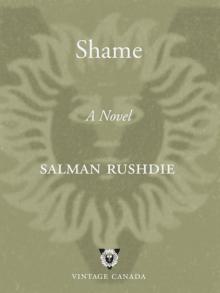 Shame
Shame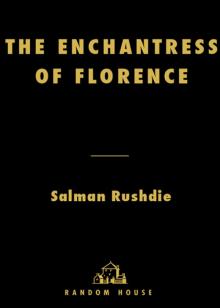 The Enchantress of Florence
The Enchantress of Florence Imaginary Homelands: Essays and Criticism 1981-1991
Imaginary Homelands: Essays and Criticism 1981-1991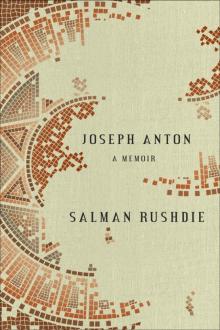 Joseph Anton: A Memoir
Joseph Anton: A Memoir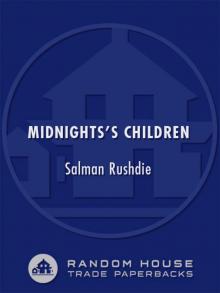 Midnight's Children
Midnight's Children East, West: Stories
East, West: Stories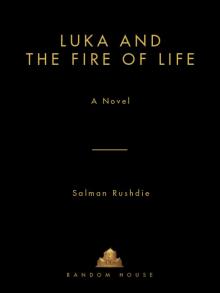 Luka and the Fire of Life
Luka and the Fire of Life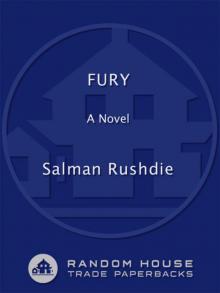 Fury Fury Fury
Fury Fury Fury Haroun and the Sea of Stories
Haroun and the Sea of Stories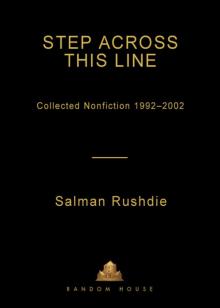 Step Across This Line: Collected Nonfiction 1992-2002
Step Across This Line: Collected Nonfiction 1992-2002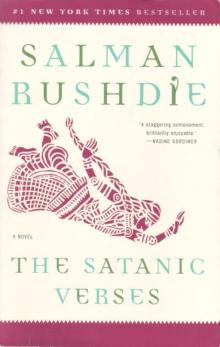 The Satanic Verses
The Satanic Verses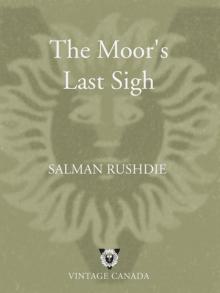 The Moor's Last Sigh
The Moor's Last Sigh The Prophet's Hair
The Prophet's Hair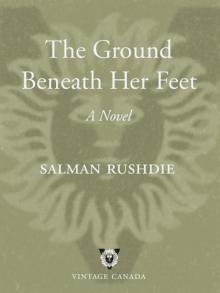 The Ground Beneath Her Feet
The Ground Beneath Her Feet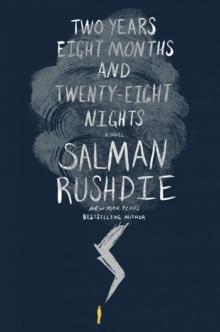 Two Years Eight Months and Twenty-Eight Nights
Two Years Eight Months and Twenty-Eight Nights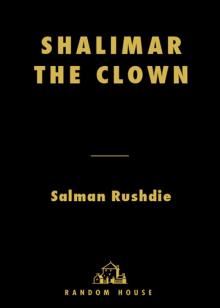 Shalimar the Clown
Shalimar the Clown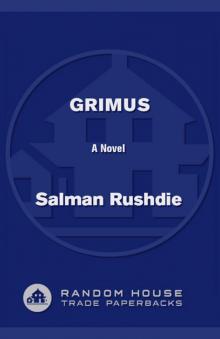 Grimus
Grimus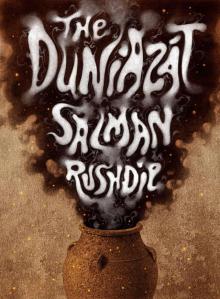 The Duniazát
The Duniazát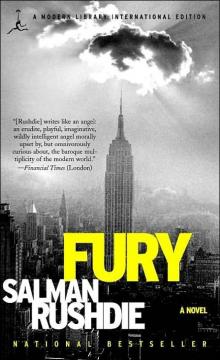 Fury
Fury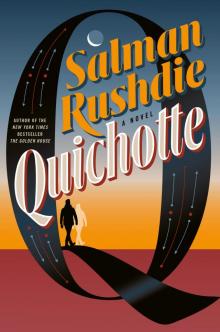 Quichotte
Quichotte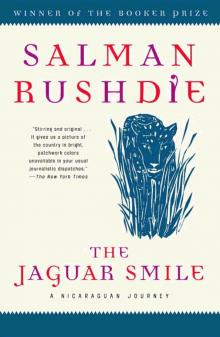 The Jaguar Smile
The Jaguar Smile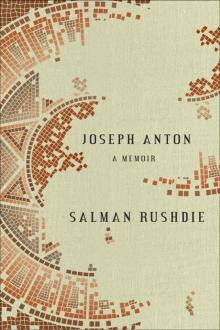 Joseph Anton
Joseph Anton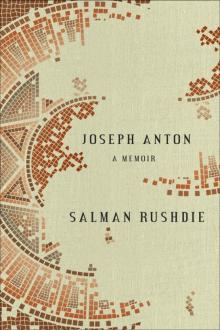 Joseph Anton: A Memoir: A Memoir
Joseph Anton: A Memoir: A Memoir Imaginary Homelands
Imaginary Homelands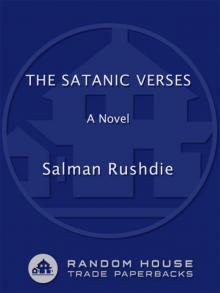 The Satanic Verses: A Novel
The Satanic Verses: A Novel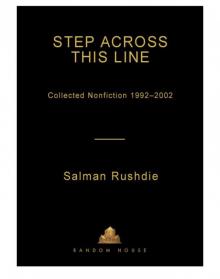 Step Across This Line
Step Across This Line East, West
East, West